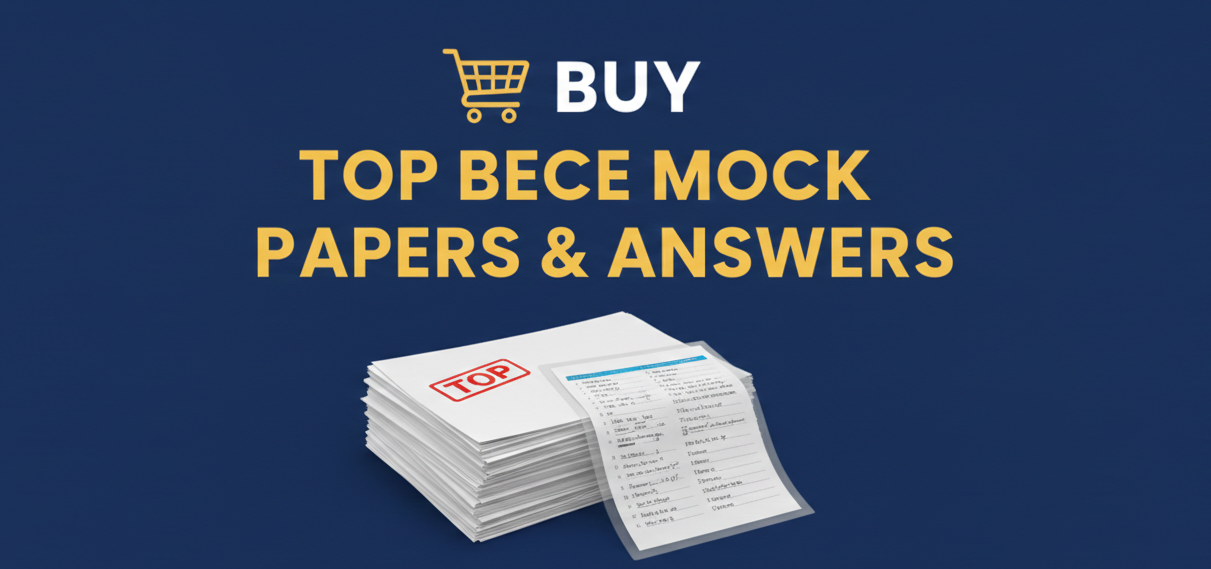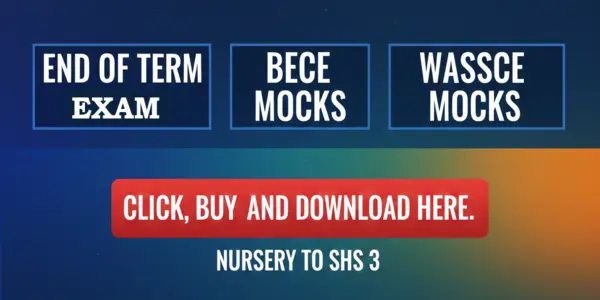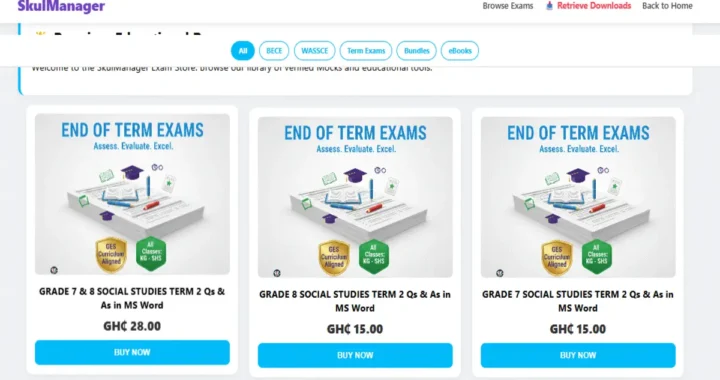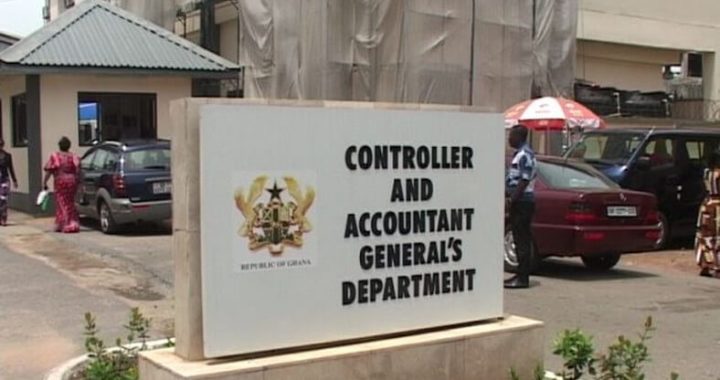How to Write Informal Letters at the BECE and WASSCE and 16 Questions

Writing informal letters at the BECE, WASSCE and during other examinations is so common that students cannot prepare for the English language paper or examination without mastering the process and features. Sadly, students often perform poorly due to several reasons.
In this post, we take a careful look at the features of informal letters in details and also share with you examples of questions used by WAEC as well as O level and A level examinations.
How to Write Informal Letters at the BECE and WASSCE
WHAT IS LETTER WRITING (INFORMAL LETTERS)?
Generally, there are three types of letters, namely Informal letters, Semi-formal letters and Formal Letters. Each one has a specific way of approaching it.
Informal letters are often called Friendly or Private letters and are normally written to people close to us. Thus, letters to friends, pen-pals, sisters, brothers, parents, relatives, wives, husbands are examples of informal letters.
FEATURES OF INFORMAL LETTERS:
Every Informal letter needs to have the following features:
- The Address of the Sender/Writer,
- The date on which the letter was written
iii. A salutation
- The Body or Main Letter
- The Subscription
- The name of the Writer
The above features are discussed as follows:
- The Address of the Sender/Writer:
The address of the writer/sender should be at the top right hand corner of the answer paper.
Use either the open punctuation (that is, without punctuation marks) or the closed punctuated one (that is, with punctuation marks). The examples are presented below:
Closed Punctuation Address Type
Education News School,
- O. Box 3417,
Accra.
Open Punctuation Address Type
Education News School
- O. Box 3417
Accra
A candidate can choose one of the two methods, but must not mix the two forms.
If the candidate is writing to a pen-pal or to somebody in a foreign country, he may include the name of his country in the address as illustrated below:
Education News School,
- O. Box 3417,
Accra,
Ghana.
Note: A candidate’s name should not appear on top of the address. The name is expected to come at the end of the letter.
- The Date:
The date of writing the letter is put directly and immediately after the address of the writer. Some of the accepted forms include:
25th August, 1993
August 25th, 1993
iii. The Salutation:
The Salutation is written close to the left-hand margin of the answer paper. The following are some of the accepted forms of salutation in informal letters:
- To close friends:
Dear Kofi, Dear Kwesi, Dear Adjevi, Hi Joe, etc.
- To close relatives (age-groups)
Dear Brother Kwaku, Dear Sister Ama, Dear Cousin etc.
- To older family relations:
Dear Father, Dear Mother, Dear Aunt, Dear Uncle, My Dear Daddy, My dear mum, etc.
Note: You must note that when you use a small initial letter ‘d’ for dear you should use small initial letters for brother, sister, mother etc. but if you use a capital ‘D’ for Dear, you should also use capital letters for Brother, Sister, Mother, Uncle etc.
- The Body of the Letter:
The body of an Informal letter consists of the introduction, the main body and conclusion.
- The Introduction:
The introduction of an informal letter may be an acknowledgement of receipt of previous letters or giving of reasons for writing. Pleasantries are permitted, but it should not take more than five lines.
EXAMPLES:
- I’ve received your interesting letter of 10th June.
- I’m grateful for your letter of 10th August, 1993.
- I’ve just received your letter of 18th November, 1993.
- I’m highly delighted to write.
- I’m sorry that I didn’t reply the last letter you wrote. We’ve started our mock exams and there’s hardly any time to get to write
- The Main Letter:
In the main letter, answer in as many paragraphs as possible, the question or questions posed in the question paper.
Familiar conversational words and word forms, which are used when speaking to an equal are needed here.
Since it is an informal letter, short forms like ‘I’ll’ instead of I shall, ‘I’ve’ instead of I have … ‘You’re’ instead of You are, ‘I’m’ instead of I am etc. are all necessary.
- I’ve – I have
- I’m – I am
- I’ll – I will/shall
- You won’t – You will not
- He’s – He has/is
- He’ll – He will/shall
- You’ve – You have
- You’re – You are
- You’ll – You will
- It’s – It is/it has
- It’ll – It will
- They’ve – They have
The Conclusion:
Conclude the informal letter by expressing your greetings, best wishes, hopes of receiving a quick reply etc.
Note: Credit is given for the use of conversational and short forms of auxiliary verbs.
NOTE: Greetings are usually placed at the end of letters, and not at the beginning.
- THE SUBSCRIPTION
The subscription is normally written immediately after the greetings and request for early reply. The name of the writer is put immediately and directly under the subscription.
The following are accepted forms of subscription for informal letters:
- For family relations and close friends:
- Yours affectionately,
Ama.
- Yours ever,
Kwesi.
- It’s me,
Ama.
- Your loving sister,
Adjoa.
- Your loving son,
Kwesi.
- For loose friends, Uncles, Aunts:
- Yours sincerely,
Ama.
NOTE: You should not end an informal letter with the subscription “Yours faithfully”. This is strictly reserved for formal letters.
For the purpose of examinations, it is advisable to use ‘Yours sincerely’ or ‘Sincerely yours’ for all informal letters.
Where the subscription contains two or more words, remember to capitalise the first word only. For example, Yours sincerely, Your loving brother etc.
Furthermore, use only your first name and not your full name or signature.
Wrong subscription examples
There is no apostrophe before the ‘s’ in “yours” therefore the following subscriptions are wrong and should be avoided:
- Your’s friend,
- Your’s sincerely,
- Your’s ever, etc.
Now that you have mastered how to write Informal Letters at the BECE and WASSCE, carefully read the questions below, brainstorm each of them and solve as many as you can.
Specimen Questions on Informal Letters for BECE and WASSCE
- Your friend in another school has written to you telling you about the programme he/she has chosen for SHS. Write back to him/her, telling him/her your preferred programme and saying why you have chosen it.
- You and some classmates of yours are standing trial on charges of ‘gross indiscipline’. You have heard that you may be guilty and be dismissed or suspended indefinitely. Write a letter to your Uncle giving him a full and frank account of the incident and appealing to him to intervene on your behalf.
- Write a letter to your sister living abroad telling her about three exciting events that have taken place in your country during last term.
- Your brother who has been living abroad for many years intends to come home. Write a letter to him, describing the social situation at home and suggesting at least three ways in which he can help.
Extra Questions
- You have been transferred by your parents to a new school. Write a letter to your friend who has remained in the old school, describing the new school and pointing out the differences between the two schools.
- Write a letter to a pen-pal overseas, telling him/her how an outdooring ceremony of a new born child is performed.
- An overseas friend of yours has written to ask you to tell him about funerals in Ghana and a festival. Write to him about one of them.
- An overseas friend of yours has written to you telling you of his house. Write back to him about how you also spend your week-ends.
- A friend of yours is in the hospital as a result of an accident. Write a letter to cheer him/her up. Tell him/her about things that have happened in his/her absence.
- Your father has written to tell you that he wants to transfer you to another school. Write a letter to him telling him why you think that you prefer to stay in your present school.
- A friend in another school has written to ask information on activities planned for your school’s Speech and Prize-Giving Day. Write a reply to him.
MORE WASSCE and BECE Specimen Questions on informal letters:
- While at school, you were told that your favourite uncle who has been overseas for the past four years is coming home for a holiday. Write a letter to a friend in another school telling him how you hope to spend the time with your uncle.
- Your best friend has accepted your invitation to attend your Youth Association Tenth Anniversary Celebration which will fall on Boxing Day. Write a letter to him telling him the programme of activities for the day, and bring out at least two of the activities that will make his visit a memorable one
- Your friend in Junior Secondary School has written to tell you that he has chosen your school for his Senior Secondary School. Write a reply to him, giving at least 3 reasons why you support or disagree with his decision.
- Your close friend missed an interesting event that took place in your school when he was on admission at the hospital. Write a letter to him describing what happened.
- Your friend has written to you that he has decided to learn a trade after his senior secondary school course. Write a reply to him giving at least three reasons why you support or disagree with his decision.




 New Term 2 End of Term Question: Nursery to Grade 8 Exam Packs (2026)
New Term 2 End of Term Question: Nursery to Grade 8 Exam Packs (2026)  Why MTN Ghana’s Ghs399 Bundle is the Best Data Deal in 2026
Why MTN Ghana’s Ghs399 Bundle is the Best Data Deal in 2026  CAGD Salary Suspension 2026: Deadlines and Actions for Affected Staff
CAGD Salary Suspension 2026: Deadlines and Actions for Affected Staff  A Plus Defends Paternity Fraud Bill: “Stand Up for the Brotherhood”
A Plus Defends Paternity Fraud Bill: “Stand Up for the Brotherhood”